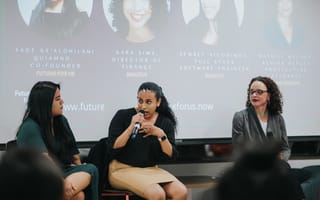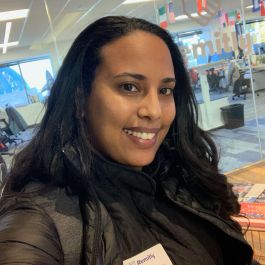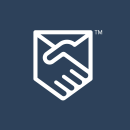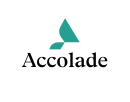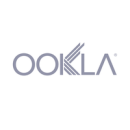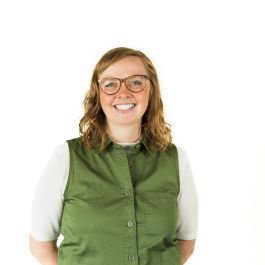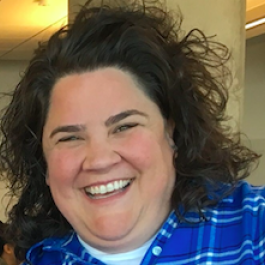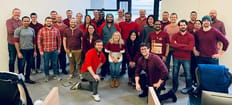Changing careers isn’t for everyone. It’s an uphill battle of company and industry research, countless meetups, dozens of cover letters, competition with more experienced candidates, networking dates, and rejection after rejection.
These six women shared why it’s worth it — and what helped them along the way.
Semret Nicodimos, a software development engineer at international payments company Remitly, said a positive community helped her through the ups and downs of her career transition. When she was hard on herself, her network pushed her to keep going.
Starting a new career doesn’t have to feel like starting over, though. Being transparent with employers and networking connections can help build a supportive community. As well, joining tech meetups or connecting online can lead to mentorship and job opportunities.
While hiring managers might see a lack of tech experience on the resume, lean into past work experience and describe how those skills can be applied to the current role. If you’re excited about that role, that’ll show through. On most job applications, passion is an unwritten requirement.
Starting a new career, especially in tech, can be overwhelming. To stand out as a new software engineer, Goldin focused on becoming fluent in the programming language Rust, rather than a little bit of all languages. Her Rust expertise paid off when she saw a job listing for Rust-fluent engineers at Transparent Systems.
When and why did you decide to make a career change? And what were the key steps you took to make it happen?
In 2015, I found myself at a crossroads between a career in advertising and a desire to learn software engineering. My background is in social sciences and the arts, and I’ve always enjoyed work that required research and finesse. I’d worked with websites and data analytics before, but I’d never done any development professionally. I believed that this career change would give me an intellectual challenge, personal empowerment and the tools to be self-sufficient with tech. I had studied theories of application programming but never had anything to compile. That was a big difference!
At first, I dabbled in weekend workshops on Python and JavaScript but found the material really challenging. In 2016, I enrolled full time in an applied programming degree at Seattle Central College. It was a 2-year program, and I complemented it with taking intro to CS classes and attending hackathons, meetups and conferences like OSCON and //build.
What challenges did you face while establishing yourself in this new career, and how did you overcome those challenges?
There were so many technologies and frameworks, and as a newbie, it was hard to know what to focus on. The best advice I ever got was “pick one thing and go deep” — even if you’re worried about X technology becoming outdated. Good software engineering skills are language-agnostic.
I decided to focus on Rust after learning about its speed and memory management at a talk at OSCON. Rust is actually a pretty tough language to learn out of a non-CS coding school since it’s low-level and it’s helpful to already have experience in languages like C or C++. At the same time, Rust is great for newbies because of its famously strict compiler guardrails, documentation and helpful community. I actually picked Transparent Systems as a place to work because they were focusing on Rust, and I’ve been lucky to get stellar on-the-job mentorship on this and other technologies. I love having the understanding of machine memory that Rust has given me, and I recommend these skills to folks learning web development. I definitely learned the value of small wins early and often to keep the momentum and morale going.
Smaller companies need employees that can wear many hats, which is perfect for job changers.”
What advice do you have for other people who are considering making a career change?
Changing careers can be an exhilarating and terrifying proposition. The good news is that smaller companies need employees that can wear many hats, which is perfect for job changers. I recommend seeking out startups or smaller companies early on in one’s career change journey. It’s a great way to see different ways of working and watch products get refined in a way that’s reactive to the marketplace.
Another piece of advice I would give to folks doing the technical shift: trust your gut. What I mean is illustrated by Robert Greene in his book on mastery, which says, “The future belongs to those who learn more skills and combine them in creative ways.” If something is hard but really exciting, and there are ways to learn it, commit to it fully and find ways to apply the learning in a realistic way. Just knowing how to do something can feel inert; technology like anything else is a tool to be applied to ideas. With constructive energy and reasonable goals, it’s absolutely possible to make the transition.
Nicodimos was considering a career change when she saw a friend’s social media post about Ada Developers Academy. Instead of pursuing a PhD, she applied to the competitive coding school to learn new skills in software development. From there, an internship at Remitly landed her a full-time engineering role.
When and why did you decide to make a career change?
My journey to becoming a software engineer started in August 2018, my first day of class at Ada Developers Academy. I thrive on analyzing problems and using critical thinking to come up with effective and efficient solutions. This love is what initially led me to my previous career in public health, more specifically the use of data. During my career at the University of Washington, I experienced the power of data through both local and global projects addressing major public health issues.
I was introduced to coding while I was working on a project that required a higher-level analysis and found myself learning through online tutorials and enjoying every minute of it. After five years at UW, I was at a crossroads in my career. I needed to decide to either pursue a PhD program or find a different job, and it was during this time that I was introduced to Ada Developers Academy through a friend’s social media post. Ada Developers Academy is a very competitive, one-year, non-profit, tuition-free coding school for women and gender diverse adults.
After extensive research, I knew Ada was the solution that would be able to blend my past experiences with my new passion for coding and the answer to the trajectory of my career. I knew Ada would facilitate my evolving passion for solving problems, expand my love for learning and, ultimately, prepare me with new skills to join the workforce in the field of software development. Through Ada, I was able to land an internship at Remitly for five months and eventually transition into a full-time engineering role within the data engineering team.
Failed attempts and broken codes are a recurring theme while establishing yourself in this field.”
What challenges did you face while establishing yourself in this new career, and how did you overcome those challenges?
For starters, the application process to get accepted into Ada was very rigorous. It required discipline and studying long hours to work through the code challenges presented as part of the application. Once accepted, the curriculum was fast-paced and needed a high level of grit, tenacity and determination. The process was mentally exhausting, so it was very crucial for me to establish a community of supporters that included family, friends, mentors and the general Ada community. These community members were my cheerleaders during wins as well as my advocates, reminding me that I was built to overcome any challenges.
Failed attempts and broken codes are a recurring theme while establishing yourself in this field. However, the important lesson through it all is to learn from it and improve your skills. Also, the most important trick is to not let it get to you. My mental mantra was “get up, dust it off, learn from it and move to the next challenge.”
What advice do you have for other people who are considering making a career change?
It is possible to become a programmer without a college or professional degree. There are many great self-taught programmers out there who are producing brilliant products that make a difference in the world, and you can be one of them. All you have to do is take a leap of faith and work hard. Never get discouraged if the road becomes bumpy because it most definitely will. Through hard work, grit and determination, you will achieve your goals and it will be all worth it. Don’t shy away from asking questions of individuals in the field with extensive knowledge and work experiences.
Mentorship is a very critical aspect of your journey, as well as learning the intricacies of the field, so make connections and learn from field experts. Make sure you establish a supportive community that positively supports and uplifts you during the ups and the downs.
Stockton said transparency about skill level is a solution, not an obstacle, to learning new tech. Asking questions and being honest with teammates at Accolade about her physics background resulted in better communication and expectation of what she could handle without getting overwhelmed.
When and why did you decide to make a career change?
My personal career change started when I left grad school in physics. Results in academia can happen slowly and mindsets can be antiquated, so I decided that a career in the tech industry would be a better fit for me. Moving into tech meant opening up myself to a bunch of new opportunities. I also reached out to friends in different careers, and I was connected to Accolade through a friend from grad school. They say it’s not what you know. It helped me feel more comfortable looking at careers that I otherwise wouldn't have considered.
What challenges did you face while establishing yourself in this new career, and how did you overcome those challenges?
There was definitely an adjustment period while I was getting used to the faster pace of the industry. I would go home exhausted due to learning so much new information. I was clear with my team lead and my teammates where I was coming from and I asked a lot of questions. I really had to let go of feeling “stupid” for asking questions while being really clear with people about what I did and didn't know.
People are generally willing to answer questions, especially women helping other women in tech.”
What advice do you have for other people who are considering making a career change?
Go for it! Don't pretend to know more than you do, but emphasize that you can and are willing to learn. I sold myself by showing that I can learn things quickly, even if I don't have the background knowledge, because every workplace has new information that any new hire will have to learn. You might have to work a bit harder to learn the “common knowledge,” but if you're invested in the career change it’s worth it. I also highly recommend reaching out to folks that are in that field for advice and connections. People are generally willing to answer questions, especially women helping other women in tech.
While raising her kids, Gadi spent time building apps and refreshing computer science skills so that when she was ready to return to the workforce, her talents would be up to date. As a parent, she accepted a job offer at Ookla due to their flexible scheduling options. Even as a new or entry-level candidate, it is important to find a company that works with your needs.
When and why did you decide to make a career change?
I took a break from my professional career when my first kid was born, and it's one of the best decisions I have made in my life. I was around him all the time enjoying and supporting his first milestones, but getting back to work was always on my mind. I didn't intend to take an extended break but ended up being out of the workforce for five years. My kid was ready to go to school, and I felt it was time for me to return to work.
I was a mobile app developer before taking the break. My kid was so interested in dinosaurs at one point, I created a dinosaur app for him that he thoroughly enjoyed. During this time, I realized that I was still very much interested in app development and wanted to go back on the product side in a similar role to what I was doing before. I gave myself plenty of time to start preparing for the interview process. I began with refreshing my computer science fundamentals and algorithms to boost my confidence. After that, I updated my resume and LinkedIn profile and started looking for opportunities.
What challenges did you face while establishing yourself in this new career, and how did you overcome those challenges?
I love programming and am so glad to be doing it again, but I knew that balancing parenting with work would be a challenge. Ookla stood out while interviewing as a flexible company where everyone is very understanding of work-life balance while being a parent. This helped calm my nerves, knowing I would be surrounded by a caring and talented team.
COVID-19 created a unique challenge as I couldn’t meet the team in person, but onboarding remotely was relatively easy. Also, school closures required more planning and prepping my kid for this transition. I felt like once I made the decision and returned to work, I was back to doing what I had always done.
It is never too late to get back to work and believe in yourself.”
What advice do you have for other people who are considering making a career change?
It is never too late to get back to work and believe in yourself. Give yourself plenty of time to prepare and become comfortable with interviews and adjusting to your work schedule. Use online tools like HackerRank and LeetCode to improve analytical and coding skills. Most of all, it's essential to reconnect with your professional self and connect your present with your past experiences.
Dronen was experiencing burnout in her former job as a social worker, so it was a relief to only be qualified for entry-level positions when she was transitioning into tech. A lighter workload than what she was used to meant more time to ask questions and get ahead of the learning curve at Subsplash. Networking with tech professionals at every level of seniority helped give Dronen a sense of where to grow in her position.
When and why did you decide to make a career change?
I was previously a social worker providing care management services to elders as well as the director of the care management team. The job was 24/7, and I found that I could never relax. Late 2017, I burned out emotionally and physically. I gave myself a few months to relax, recalibrate and grab coffee with as many mentors and friends of friends as I could in order to find a new direction. My mentors recognized that the skills and strengths that it takes to be a great product manager were ones that were already built into my personality. I gobbled up any and everything I could get my hands on to learn more about the career field, which involved online classes, books, podcasts and career groups on Facebook.
What challenges did you face while establishing yourself in this new career, and how did you overcome those challenges?
First of all, I had no chance of getting hired as a junior product manager with my recent work experience as a social worker, so I had to start at the bottom and climb my way up. It was challenging to adjust to lower responsibility in the beginning, which was actually good for me while recovering from burnout. Patience and persistence was my biggest learning. I regularly networked internally and externally to gain direction of what skills I needed to build so that I would be in a good place for advancement. Even so, I needed to give myself the opportunity to grow while being patient for a position to open up.
Patience and persistence was my biggest learning.”
What advice do you have for other people who are considering making a career change?
Meet with as many people who are in that position from a variety of companies. It was also super helpful to meet with people who were at the beginning of their careers, as well as senior level to better understand the full spectrum of the field. Once you decide that you’re in, just rip off the Band-Aid and get started with learning and networking. You’ll likely have to squeeze into an entry-level position, but it will certainly pay off in the long run. When you’re in, don’t ever stop advocating for yourself and believing that you can do it.
After teaching for 10 years, Wilson was ready for a career change. She talked with friends about her career plans and someone in her network invited her to join Zipwhip. Being transparent with your peers about career goals, even if you don’t know where you want to go next, offers them a chance to introduce you to mentors who can help.
When and why did you decide to make a career change?
I was working in an Autism Inclusion Program at John Hay Elementary until October 2014. I had been there for a little over 10 years and really loved the work, students, parents and my colleagues, but I knew it was time for a change. I had shared with a dear friend that I was open to leaving education, even though I felt conflicted.
In September of 2014, I received a text from the SVP of sales at Zipwhip, and he was asking me if I might be interested in a career change; he had heard from his wife that I might be interested. I was presented with the opportunity to leave my stable job with a pension and take a step into the startup world to help build and establish a team at Zipwhip. The exact day I received the text from Zipwhip, I had also received a job offer from a nonprofit that I had been deeply connected to for the last 15 years. When I placed the two opportunities back-to-back, I was continually drawn to Zipwhip. I believe that it was partly due to the unknown, but I think more importantly I knew that the experience with Zipwhip would add a whole set of skills that I would not have garnered at the nonprofit.
The challenges I faced were that I didn’t know what I didn’t know.”
What challenges did you face while establishing yourself in this new career, and how did you overcome those challenges?
The challenges I faced were that I didn’t know what I didn’t know. I did not know the scale of risk that I was taking by joining a startup with less than 30 employees. If I had to do it all over again, I would still choose Zipwhip because of all the amazing people I get to work with, all the customers I’ve gotten to know and because it’s rewarding to see what a difference our product makes in their lives.
In the early stages, we did what we had to do to make it work. We didn’t have robust departments like marketing or support. We had to create our own flyers for trade shows and write our own case studies. The learning curve was steep, if not vertical. Zipwhip was the first company to text-enable existing business phone numbers, so we were all learning this new industry together. I would take notes during meetings of acronyms or concepts that I didn’t understand and would Google them afterward. I also found trusted colleagues to ask clarifying questions to, who in turn became a trusted network.
What advice do you have for other people who are considering making a career change?
The two questions I ask myself before making big decisions are “is it meaningful?” and “will it make a difference?” At the end of the day, both jobs I had been offered were meaningful and would make a difference, but it was the Thomas Jefferson quote that got me: “With great risk comes great reward.”
Back in 2001, I had left my career in radio to pursue a master’s degree. I packed everything I owned into my car and drove across the country to Seattle, where I knew one person. It has been one of the best and riskiest decisions I had made up to that point. Every time I’ve made those risky decisions I’ve never regretted it. The outcome might not have been what I expected, but sometimes it has been so much more. My advice to anyone at a crossroads: trust your gut, follow what excites you and build a trusted network of colleagues and friends along the way.

